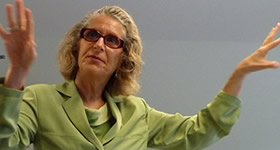Years ago, I wrote a regular column for the Nonprofit Quarterly. And I published some of my greatest articles in NPQ, too.
I’m sharing my column of March 18, 2010 here today. Wow. 11 years ago. I think the big question is how much has changed since then?
= = = = = = = = = = = = = = = = = = = =
THE COLUMN: What do all the words mean?
Robert L. Payton, the first professor of philanthropics in the U.S., defined philanthropy as voluntary action for the common good. I love that definition. People voluntarily give their time and / or their money. Voluntarily. Not because they were pressured by a friend or were exchanging favors with a business associate. Or fulfilling some obligation.
Philanthropy is voluntary action for the common good. People give time and money to make things better in their communities.
Years ago I was presenting in Mexico City. I heard Mexican philanthropist Don Manuel Arango Arias talk about philanthropy as “freeing the talents of the citizenry.” He was so eloquent.
Fundraising guru Hank Rosso described fundraising as the servant of philanthropy. I like that servant concept. Reminds me of the servant-leader philosophy.
Whether you use the term fund development or fundraising (I prefer fund development; it’s broader than fundraising.), the process is essential. We know that most people give because they are asked. (Just make sure you’re asking the right people – those who are interested!) Fund development is the partner, the servant to philanthropy. Philanthropy is all about dreaming. Through philanthropy, we change lives and we change communities. We change the world.
“I love philanthropy because it allows me to substitute realities. Philanthropy is the motor that drives social change.” So said Lee Kaiser, Ph.D., founder and president of Kaiser Consulting. I practically hugged him for that!
Philanthropy represents the interests and feelings of donors. Philanthropy can be a transformational act for donors, nonprofits, and the communities served by both. (Read more about transformational acts in High Impact Philanthropy: How Donors, Boards, and Nonprofit Organizations Can Transform Communities by Kay Sprinkel Grace and Alan L. Wendroff.)
So here’s how I explain fund development: Philanthropy means voluntary action for the common good. Fund development is the essential partner of philanthropy. Fund development makes philanthropy possible by bringing together a particular cause and donors and prospects that are willing invest in the cause. The goal is to acquire donors of time and money who stay with the charity over time. This is accomplished through the process of relationship building. With the donor at the center, the fund development process nurtures loyalty and lifetime value, thus facilitating philanthropy. You know if your relationship building works because your retention rates rise and the lifetime value of your donors and volunteers increases.
And here’s another version: Philanthropy is voluntary action for the common good. The nonprofit / NGO structure is the mechanism that frees the talent of people by organizing caring acts. And fund development best serves philanthropy by providing a socially just process to generate gifts to support the common good.
How about a conversation about meanings with your staff colleagues and with your board members? I’ll bet their words will be gentle and inspiring when you ask them to define “philanthropy.” I suspect that their descriptions of “fund development” will not be particularly positive or inspiring.
How you can you change that? Why would you want to do so?
= = = = = = = = = = = = END OF THIS 2010 ARTICLE. Seems like it still adds value to our sector and our work. = = = = = = = = = = = == = = =

